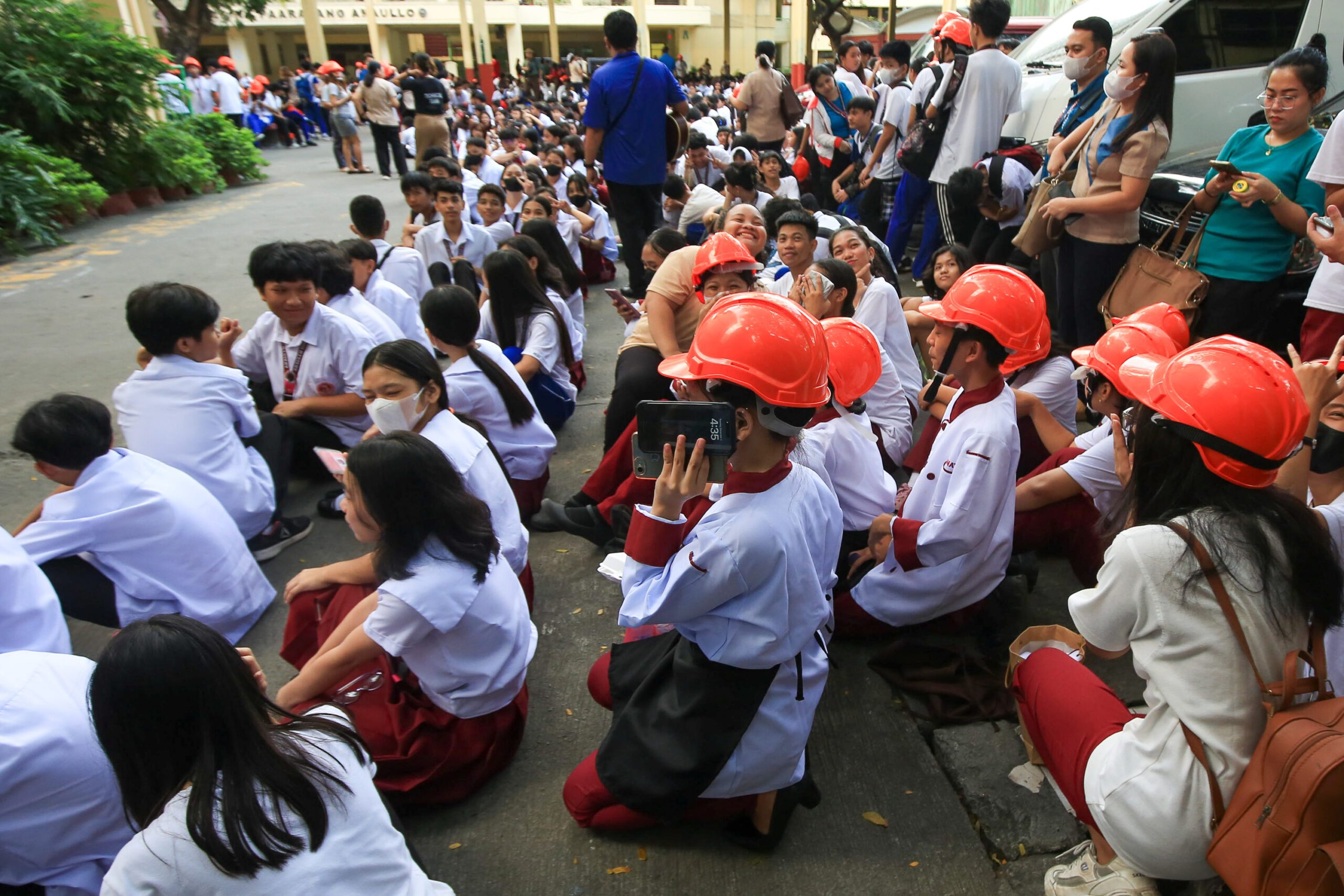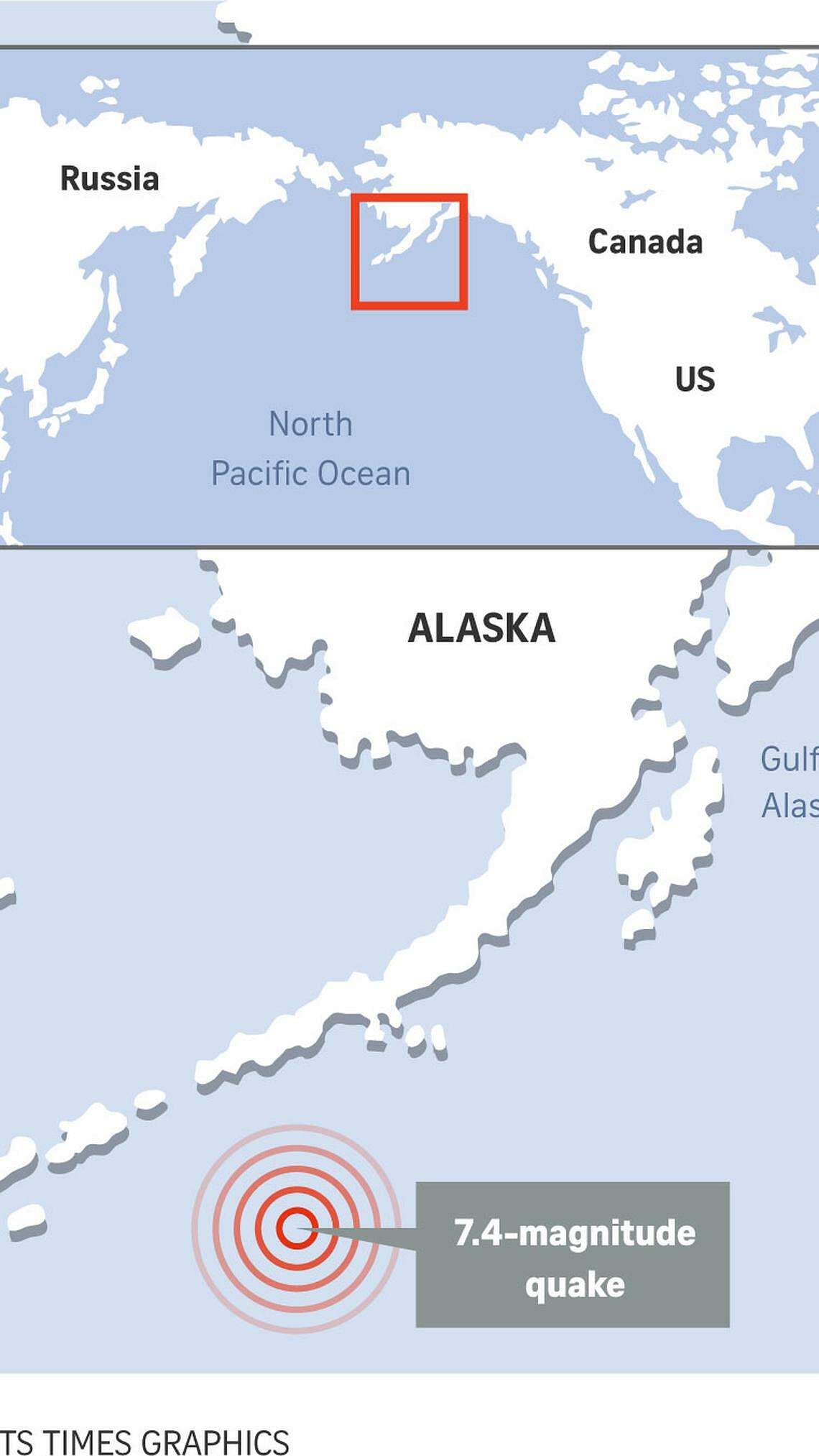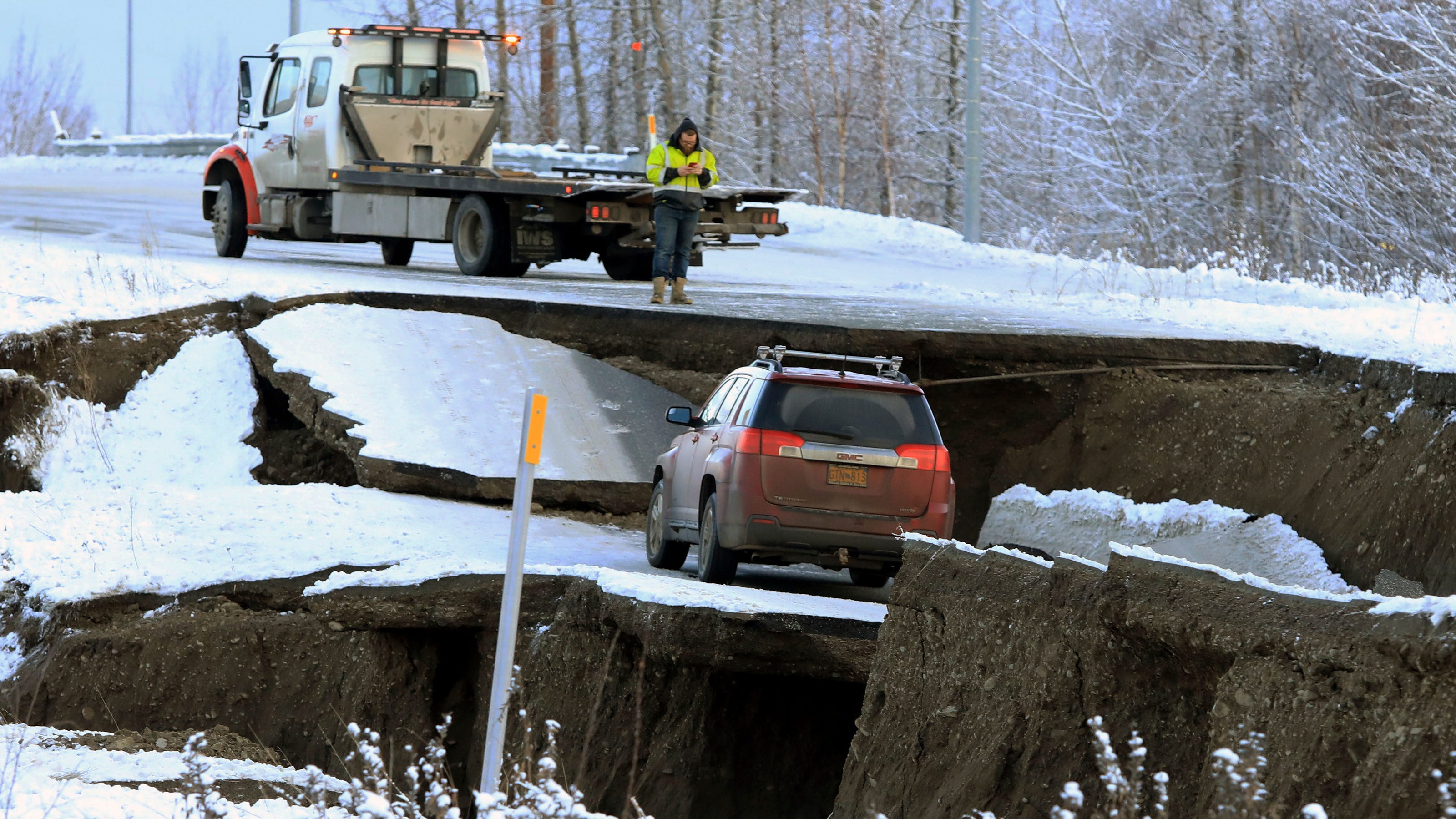How would it feel if "7.9-Magnitude Earthquake Strikes Southeast Alaska"? Are you seeking more information? Then you have stumbled upon the right place. Editor's Notes: "7.9-Magnitude Earthquake Strikes Southeast Alaska" have published today date. This topic is important to read for people who live in Southeast Alaska or nearby areas. People are scared, how they will recover from this devastation. We made a guide about it.

Magnitude 5.9 earthquake strikes Occidental Mindoro - Source www.rappler.com
Our team has analyzed and dug into the information to help people to make the right decision.
Key differences or Key takeways:
| Key Differences | Key Takeaways |
|:---|---:|
| 7.9-magnitude earthquake strikes Southeast Alaska | The earthquake caused widespread damage and power outages to multiple communities |
| The earthquake triggered a tsunami warning | The tsunami warning was later canceled |
| There were no reports of injuries or fatalities | The earthquake was a reminder of the importance of earthquake preparedness |
Transition to main article topics:
FAQs
The 7.9-Magnitude Earthquake Strikes Southeast Alaska has raised several common concerns among the public. Here are some frequently asked questions and their answers to address these concerns:

Magnitude-7.4 earthquake strikes Alaska Peninsula; tsunami warning - Source www.straitstimes.com
Question 1: Is there a risk of a tsunami?
According to the National Tsunami Warning Center, there is no tsunami risk to the United States or other countries at this time.
Question 2: Are there any reports of casualties or injuries?
As of the latest reports, thankfully there have been no reports of injuries or fatalities related to the earthquake.
Question 3: How strong was the earthquake?
The United States Geological Survey has determined the magnitude of the earthquake to be 7.9, making it the strongest earthquake to hit Alaska in decades.
Question 4: What is the extent of the damage?
The full extent of the damage is still being assessed, but preliminary reports suggest that there has been some damage to infrastructure and property, with fallen trees and power outages.
Question 5: What should I do if I feel an aftershock?
If you experience an aftershock, remain calm and follow the recommended safety protocols: Drop to the ground, take cover under a sturdy table or desk, and hold on until the shaking stops.
Question 6: Where can I find the latest updates on the situation?
The latest official updates and advisories can be found on the website of the Alaska Earthquake Information Center or through local media outlets.
It is important to stay informed and follow official instructions to ensure safety and contribute to the response and recovery efforts.
Refer to the 7.9-Magnitude Earthquake Strikes Southeast Alaska article for more details and updates on the situation.
Tips
If you are in an area where an earthquake has occurred or is likely to occur, it's important to take steps to protect yourself and others. Here are some tips to help you prepare for and respond to an earthquake:
Tip 1: Drop, Cover, and Hold On
• If an earthquake occurs, drop to the ground, take cover under a sturdy table or desk, and hold on until the shaking stops. This will help protect you from falling objects and debris.
Tip 2: Stay Informed
• Listen to local radio or TV stations for information and instructions from emergency officials. Stay informed about the situation and any potential hazards.
Tip 3: Check for Injuries
• After the earthquake, check yourself and others for injuries. If you are injured, seek medical attention immediately.
Tip 4: Turn Off Utilities
• If you are able, turn off your gas, electricity, and water. This will help prevent fires, explosions, and leaks.
Tip 5: Stay Away from Damaged Areas
• Stay away from buildings that have been damaged, as they may collapse further. If you must enter a damaged building, be extremely careful and be aware of potential hazards.
Tip 6: Be Prepared
• Prepare an emergency kit that includes food, water, first-aid supplies, and a flashlight. Keep this kit in a place where you can easily access it.
Tip 7: Evacuate if Necessary
• If you are ordered to evacuate, do so immediately. Follow the instructions of emergency officials and go to a designated safe area.
Summary
By following these tips, you can help to protect yourself and others during an earthquake. It's important to be prepared and know what to do in case of an emergency.
7.9-Magnitude Earthquake Strikes Southeast Alaska
A powerful 7.9-magnitude earthquake struck Southeast Alaska on Wednesday evening, triggering landslides, causing power outages, and leading to the issuance of a tsunami warning. The earthquake, which occurred at a depth of 10 miles (16 kilometers), was the largest to hit Alaska in decades and has raised concerns about potential damage and aftershocks.

Devastating 7.9-magnitude quake strikes Nepal, India - News Examiner - Source newsexaminer.net
- Epicenter: The earthquake's epicenter was located in the Pacific Ocean, about 50 miles (80 kilometers) west of Craig, Alaska.
- Magnitude: The earthquake had a magnitude of 7.9, making it one of the largest to hit Alaska in recent history.
- Damage: The earthquake caused landslides and power outages in several communities in Southeast Alaska. No major structural damage has been reported so far, but there are concerns about the potential for aftershocks.
- Tsunami: The earthquake triggered a tsunami warning for coastal areas of Alaska, but the warning was later lifted after no major waves were observed.
- Aftershocks: A series of aftershocks have been reported following the earthquake, including several with magnitudes greater than 5.0.
- Response: The Alaska Division of Homeland Security and Emergency Management is coordinating the response to the earthquake and has deployed resources to affected areas.
The earthquake serves as a reminder of the importance of earthquake preparedness and the need for residents to be aware of the risks associated with living in an active seismic zone. It is crucial that communities in Alaska take steps to mitigate the potential impacts of earthquakes, including implementing building codes that are designed to withstand seismic activity and educating residents on earthquake safety measures.

DEVELOPING: Tsunami Warning Issued After Powerful 7.7 Magnitude - Source www.thegatewaypundit.com
7.9-Magnitude Earthquake Strikes Southeast Alaska
The 7.9-magnitude earthquake that struck Southeast Alaska on January 23, 2023, was the largest earthquake to hit the region in over a century. The quake, which occurred at a depth of about 25 miles beneath the surface, was felt throughout Alaska, parts of Canada, and the Pacific Northwest. The epicenter was located about 60 miles northwest of Yakutat, a small town on the Gulf of Alaska.

7.0 earthquake strikes near Anchorage, Alaska; tsunami warning issued - Source www.indystar.com
The earthquake caused widespread damage to infrastructure throughout the region. Roads were buckled, bridges collapsed, and buildings were damaged or destroyed. The quake also triggered landslides and avalanches, which further damaged roads and trails. The economic impact of the earthquake is likely to be significant, as businesses and homes were heavily damaged or destroyed.
The earthquake also had a significant impact on the environment. The shaking caused landslides and avalanches, which released large amounts of sediment into rivers and lakes. The earthquake also caused the formation of new glaciers and icebergs, which could have a long-term impact on the ecosystem.
The 7.9-magnitude earthquake that struck Southeast Alaska was a major event with significant impacts on the region. The earthquake caused widespread damage to infrastructure, the environment, and the economy. It is a reminder of the power of nature and the importance of being prepared for future earthquakes.
Table: Impacts of the 7.9-Magnitude Earthquake in Southeast Alaska
| Category | Impact |
|---|---|
| Infrastructure | Widespread damage to roads, bridges, and buildings. |
| Environment | Landslides, avalanches, and the formation of new glaciers and icebergs. |
| Economy | Significant economic losses due to damaged businesses and homes. |